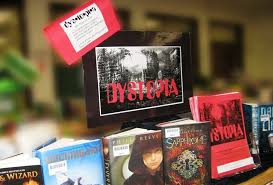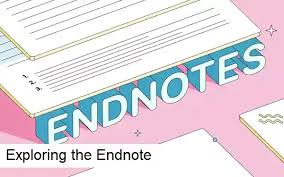In the world of fiction storytelling, if you are looking for a direction, to create work that captivates the readers by showing the dark, futuristic world, and societal issues, the subgenre you are looking for is dystopian fiction.
From The Hunger Games to the classics like 1984 by George Orwell, writing successful dystopian stories is more than just forcing on a genre. Not only do you need your creative writing skills, but how you craft a bold theme, and mention the destruction of society in an engaging manner. Thus, to successfully craft a dystopian story that resonates with audiences, you must navigate a complex landscape of world-building, character development, and thematic exploration as a writer.
Understanding What Is the Dystopian Genre
When it comes to describing this genre, take it as the crystal ball that perfectly reflects the messed-up future world. Dystopian Fiction stories vary the topics from post-apocalyptic, to any war situation, and of course, imagine zombies or artificial intelligence taking over our world.
Now comes the question that many of the best ghostwriters for hire face, what makes a fiction story a dystopian one? Well, some characteristics make it a perfectly disastrous story. And believe it when we say, it’s like a not-so-fun rollercoaster ride through the underbelly of society.
-
Dark, oppressive setting: The world is often bleak and harsh, like a decaying city or a controlled society with limited freedom.
-
Authoritarian control: A centralized power, whether government or corporation, imposes strict rules and surveillance, suppressing freedom and individuality.
-
Technological dominance: Advanced technology plays a key role in controlling or manipulating people, often leading to a loss of humanity.
-
Themes of loss: The story explores the loss of freedom, identity, or hope as basic human rights are stripped away.
-
A cautionary tale: Dystopian stories often warn of what could happen if certain trends or issues are ignored.
How To Write A Dystopian Fiction Novel
-
Developing a Dystopian World
When it comes to writing a novel of genres like this, the very first thing is establishing the setting and the atmosphere. Make sure the setting feels oppressive and bleak, with hints of a once-great society crumbling under the weight of its flaws.
Moreover, it creates a system of control and oppression. And how about the technologies that are known as the tools for liberation, or are becoming a means of control?
-
Creating Complex Characters
Well, the heroes of this world of dystopia, can come in all shapes and sizes, from rebellious teens to reluctant leaders. Antagonists are often those in power, pulling the strings behind the scenes to maintain their iron grip on society.
And when it comes to character arcs and development, characters should grapple with tough choices and evolve in response to the challenges they face.
-
Crafting a Gripping Plot
A good dystopian plot should keep readers on the edge of their seats, with twists and turns that leave them questioning everything they thought they knew. So, always make sure to start with a bang, ramp up the tension, and finish with a satisfying conclusion that leaves readers hungry for more.
From government conspiracies to shocking revelations, dystopian fiction is full of juicy plot devices that keep the story moving at breakneck speed. And nothing keeps a reader hanging with it, with cliffhangers, red herrings, and heart-pounding action sequences.
-
Exploring Themes in Dystopian Fiction
Dystopian fiction often serves as a mirror reflecting our current society’s struggles and pitfalls. Use your dystopian world to explore issues like inequality, surveillance, or authoritarianism.
One of the core themes in dystopian fiction is the battle between personal freedom and societal control. Show the tension between characters yearning for autonomy and oppressive systems seeking dominance.
-
Building Tension and Conflict
In your dystopian stories, create conflict that challenges characters both externally, through oppressive regimes or environmental disasters, and internally, through moral dilemmas or personal struggles. It also, builds suspense by planting subtle hints of future events and crafting moral dilemmas that force characters to make impossible choices.
In stories like these, heightening stakes and consequences is quite essential. Thus, tension ramps up by escalating the risks and consequences that characters face as they navigate the dystopian world. Make readers feel the weight of decisions and the impact of failure.
To Conclude
If you want to explore the dark side of your writing skills, now is the perfect time to start writing your very first dystopian fiction. So, explore and consider the key points in this article and write your next masterpiece.




